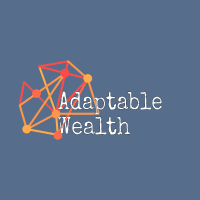We’re all familiar with the saying “health is wealth”, and it’s spot on. Nothing is more meaningful to a life than being free of disease and injury, feeling great, with a positive mind and doing what you love with those you love. That is true wealth.
But it’s not so well known that good health can lead to an abundance of financial wealth, and on the flip side, abundant financial wealth has been shown to improve health. It works through 3 main channels:
Income
The potential loss of income due to lower productivity, taking more time off etc. can be huge. Those in good health tend to be more productive, focused and involved in their job or business.
Cost avoidance
The avoidance of health care costs can save you tens of thousands, and in some cases, hundreds of thousands of dollars over your lifetime. With the cost of healthcare skyrocketing over the past 20 years, imagine how expensive it will be 20 years from now. This gives us an even greater incentive to focus on and invest in our health.
Ability to afford better health care
The more financially wealthy you are, the better the health care you can afford. You can afford to go to the private doctors who take the time to really understand you’re areas of risk instead of cycling you through as quickly as possible because they have a quota to meet. You can afford to live in the best neighborhoods with much less pollution, crime and stress. You can afford to eat the highest quality food. I can go on and on but I’ll spare you.
It’s a self reinforcing cycle and it’s time we acted like it. How you ask? By redefining two concepts most closely associated with money: Investment and wealth.
Summary
- There are 10 generally accepted components of total health: Physical, Mental, Nutritional, Emotional, Intellectual, Financial, Social, Spiritual, Environmental and Occupational
- Health and wealth are part of a self reinforcing cycle where better health leads to more financial wealth and more financial wealth affords better health.
- I define an investment as an act that requires some type of energy now in return for a larger quantity of energy later.
- 12 ideas for a healthier 2022:
- Exercise
- Eat helathy(er)
- Sleep better
- Develop & maintain close relationships
- Kick fear and negativity
- Meditation & prayer
- Be childish & curious
- Travel & experience the world
- Unplug at least 1 day per week
- Set goals
- Take risks & challenge yourself
- Give
When you hear the word investment, most people immediately jump to money as wealth. But you gotta think more broadly. An investment is an act that requires some type of energy commitment today in return for a larger quantity of energy in the future.
This holistic view opens your mind to seeing almost everything as an investment one way or another; Including all facets of your health.
The concept of wealth also needs to be broadened and, here at Adaptable Wealth, one of our primary tenets is redefining wealth. Wealth is so much more than the accumulation of financial assets and physical possessions. Health is wealth, and health includes financial wellbeing.
As a matter of fact, there are 10 generally accepted components of total health, and making investments to build strength across as many as possible is the key to thriving rather than just being alive.
Psychological
There are 5 components of psychological health:
Emotional (Feeling)
The ability to process emotions in a constructive and non-detrimental manner. You are able to deal with emotional stress in a way that allows you to recognize, accept and process your feelings without building a dependence on a drug, resorting to violence or destroying your relationships.
Social
The ability to form and maintain satisfying relationships with others and the ability to adapt and act “appropriately” in many different social situations. In my opinion, it also includes being able to deviate from social norms that you do not agree with even if it means having to deal with ridicule and/or ostracization.
Spiritual
Spiritual health refers to a sense of connection to dimensions of life other than your physical existence. It includes a sense of peace, purpose, connection to non-human things and beliefs about the meaning of life.
Intellectual (Thinking – Intellectual)
Intellectual health refers to the desire and ability to increase your understanding, improve skills and continually challenge yourself with the goal of maximizing or at least improving your intellectual potential. You are also free of intellectual diseases such as dementia, Alzheimers, ADHD or other cognitive disabilities.
Mental (Thinking – Non Intellectual)
Mental health is the non-intellectual part of psychological health. It’s what is not included in the other 4 components of psychological health. It includes things such as perceiving life in realistic ways, bipolar disorder, schizophrenia, anxiety disorders, depression etc.
Physical
The ability to live your life without physical fatigue, pain or disease. Additionally, you are able to perform difficult physical tasks in order to do what you desire in life.
Nutritional
The intake of food and drink in a balanced and healthy manner to support metabolism and bodily growth and repair. Your body gets the vitamins, minerals and other nutrients required to thrive on a cellular level. There is a lack of disease and pain related to the processing of food and drink.
Financial
The ability to maintain a relationship with money where you are in control and use it as the tool it is meant to be. Financial health is usually obtained through a balance between your income and expenses such that you are able to enjoy many of the things that can be bought with money without creating unnecessary stress related to your finances. It also includes the intelligent use of debt, keeping debt levels low and a savings rate high enough to achieve your financial goals.
Environmental
The absence of injury, illness or disease as a result of your surroundings. Whether it be exposure to hazardous agents or unsafe or unhealthy living situations, environmental health is concerned with all the ways that the world around us can impact our total health.
Occupational
Similar to environmental health, occupational health deals with how your “job” affects your total health. Are you “stuck” in a job that you hate or that does not offer opportunities for growth and fulfillment? If so, then you have poor occupational health. Your “job” should be a place of intrigue, discovery, growth and fulfillment.
To Improve the areas of health you feel could be better, do an honest self assessment and start working on your areas of need. Here are 12 ways to improve your total health and wellbeing in 2022:
Exercise
Targeted components of health: Physical, mental, intellectual, emotional, social and financial
We all know how regular exercise results in physical health. But did you know there is an extensive body of research showing significant improvement in mental health as a result of regular exercise1?
And it doesn’t have to be intense exercise. A higher intensity is better for your heart, lungs, muscles etc., but even a brisk walk, combined with some stretches, will get your energy flowing, clear your mind and improve your mood.
Nor does it have to be every day. You can start slow and work your way up to several days per week. To promote a higher level of wealth-being, we should strive for 4-5 days per week, but 3 is better than zero.
I’d like to emphasize the slow pace when you’re starting an exercise routine. When first starting, we feel fresh and strong. We think we can get in there and give it everything we got.
Not so fast! You’re going to end up destroying the longevity of your routine. If your body is not accustomed to exercise, you’ll end up being sore, overly tired and achy to the point that you’ll have to then take multiple days off to recover. How do you think you’ll feel about continuing the routine once your body recovers? Probably not too excited huh.
So, start slow. If you haven’t exercised in more than a few weeks, just start with a brisk walk and stretching for the first few days and build it up from there. You’ll thank me when you’re able to continue you’re routine indefinitely.
One last thing. Make it a priority to get outside when you exercise. There are so many positive health effects of being outside that it takes the benefits of exercise to the next level.
P.S. In my opinion, yoga is very important as we get older. Being limber and able to control your body weight in several different positions helps avoid injury as we age.
Eat healthy(er)
Targeted components of health: Nutritional, physical, mental, intellectual, emotional and financial
Just like exercise, we all know eating healthy is vital2 to a long, rich life3 but the same paper cited above points out that nutrition is shown to have meaningful impacts4 on several components of health.
I’m not saying we should never eat cake, burgers, fries, ice cream, jalapeno poppers etc. but we should find a balance. We definitely shouldn’t eat them every day. I strive for maybe once or twice a week and it’s not always easy.
Also, too many people think that paying more now for high quality, non-GMO, minimally processed or whole food is too expensive. On the contrary, you can end up saving tons of money over the course of your life.
On a side note, I want to take a moment to point something out to us parents.
The habits that kids develop early in life usually stick with them. As a father, I feel it is imperative that we who are parents promote healthy eating by our children from the very beginning so that a healthy lifestyle is part of who they are as humans. This will allow them to live longer, richer lives than if we just give them all the mac n cheese, Pizza, chips, candy and soda they want.
Trust me, I know it’s very difficult when they won’t eat their broccoli or they throw a fit in the store because you won’t get them that lollipop that is bigger than their head. But it’s up to us as parents to consider their future in all our decisions and to be the example we want them to follow. I encourage all you parents to adopt healthy eating habits. Your children look to you to show them the right way to live and by eating healthy(er) yourself, you are demonstrating that nutritional health is important.
Sleep better
Targeted components of health: Nutritional, physical, mental, intellectual, emotional and financial
Just like exercise and eating healthy, we all know the importance of getting enough sleep and good quality sleep as well. However, according to the CDC, 1 in 3 American adults say they don’t get enough sleep5. Honestly, this is much better than I expected.
Not getting at least the recommended 7 hours of sleep each night has been statistically linked with chronic health problems such as heart disease, high blood pressure, obesity, depression and diabetes.6 We all know each one of these result in a shorter and less enjoyable life by causing us to be too tired to exercise, crave high sugar and/or high fat foods, consume too much caffeine, be short tempered or cranky etc.
Quality of sleep is another important factor. The research I’ve found can’t agree on quantity or quality being more important than the other, but they all agree that both are vital to overall health.
It’s quite easy to make sure you get enough sleep (quantity). Just make it a priority and make sure you are in bed by a certain time depending on when you wake up.
So, let’s focus on some ways that we can improve the quality of sleep:
- Do the dance with no pants – Either by your self, or with some help
- Go to bed and wake up at close to the same time every day – Even on weekends
- Get enough natural light and air throughout the day
- Exercise during the day – but limit physical effort close to bedtime
- Avoid screens, flashing lights and other visually stimulating environments at least an hour before going to bed
- Avoid alcohol and sugary and fatty foods before bedtime
- Keep your bedroom cool, quiet and dark – If noise is a problem, run a fan or something else that has a constant and consistent sound. Avoid sounds that change or increase/decrease in volume
- Get a better mattress – A mattress pad can help too
- Find a pillow that fits your head, shoulders and neck the best
- Meditate and/or pray before going to bed
- Fill your environment with relaxing scents and calm sounds
- Dim the lights in the house 1 hour before bed
Develop & maintain close relationships
Targeted components of health: Mental, emotional, social, spiritual and environmental
This is one that I struggle with. I have to constantly remind myself to reach out to friends and family that I haven’t talked to in a while. For example, I haven’t talked to my two best friends in over a year! Not good.
We are communal beings at our core. That’s why we organize into families and communities and establish groups. Not only does it provide physical protection, we get a sense of purpose7 and contribution8 out of it which is very important9 to our mental, emotional and social health.
And I don’t mean communicating on social media platforms. They are a genius idea but we’ve bastardized the purpose. And we do not get nearly the connection10, or mental/emotional benefit from liking or commenting on a post, as we do if we’re sitting face to face with someone shootin the shit and laughing.
We need to remind ourselves that these platforms are tools to make us more productive and connected to people we wouldn’t otherwise be able to connect with. They’re not a platform to spend countless hours commenting on Kanye West’s latest rant. Time we will never get back.
Kick fear & negativity
Targeted components of health: Mental, emotional, social, financial, intellectual, spiritual and environmental
The evidence of a causal relationship between positivity and mental and physical health is still a bit murky but a growing body of research11 is showing promise12.
And there are some things you don’t need science to tell you. Sometimes you feel it in your gut, or you’ve experienced it yourself. All I know is it helps me tremendously.
Other ways you can promote a positive and happy mind set are:
- Surround yourself with positive sounds, feelings and scents (put on some classical music, light some incents, go relax in the bath or hot tub)
- Go outside (exercise, hike, swim/surf, walk, fish, hell…pick your nose! – just get outside)
- Laugh or smile (Listen/watch something funny)
- Meditate or pray
- Set goals or make plans for the future
- Write in a journal about all the things you are grateful for
Meditation & Prayer
Targeted components of health: Mental, emotional and spiritual
This goes hand in hand with positivity we just covered and also shows modest13 yet positive correlation14 with several components of total health. It’s another one that if you do it and it works for you, you don’t need science to tell you that it works. You can tell science that it worked for you.
My favorite book on meditation is Mind Hacking by Sir John Hargrave. Actually, if you want to be entertained at the same time you learn how to get the most out of meditation, I suggest listening to the audio version. This dude is hilarious. He actually makes meditation fun.
Not only can meditation and prayer help reduce stress and promote a positive world view, I’ve been using it to sleep better as well. Each night, I will say a quick prayer and then I’ll use the meditation technique of focusing on my long deep breathing to fall asleep. I’ve found that not only do I fall asleep quicker, I also get better quality sleep.
Be Childish & Curious
Targeted components of health: Mental, emotional and intellectual
Run around, play, explore, be curious. If you see a worm, bug, spider, bird etc., stop and check it out, make observations about it.
If you have kids, play blocks, hide-and-seek and rough house with them.
Stop being so serious! There is no reason we can’t have fun and be curious when we get older.
And don’t be worried about what other people think of you. Just because they’re old and curmudgeonly isn’t your problem. F em!
Lastly, Start asking “why” and “how can I” more often. These two phrases are always popping into the minds of children. They open your mind and put your brain into a problem-solving mode. Conversely, “I don’t know” and “I can’t” close your mind and no progress is made.
So, you can’t afford a toy for your child that they want. Instead of telling them that you can’t afford it and leaving it at that, ask yourself “how can I afford it”. Even if you’re not going to actually buy the toy, go through the thought process of what you can do to cut expenses elsewhere or make more money so you can buy it.
There is no more powerful role model in your child’s life than you. Showing them that you take the time and energy to figure things out, rather than just saying I can’t, will teach them to do the same. You’ll create a go getter, a problem solver, a successful adult.
Travel & Experience the World
Targeted components of health: Mental, emotional, intellectual and social
Get your ass out there and see the world! It is so damn beautiful and just breathtaking. Words cant describe it.
Unplug from Electronics at least Once a Week
Targeted components of health: Mental, emotional, social and environmental
Since computers and the internet came into the mainstream in the 1980’s and 90’s, technology has been taking a larger and larger portion of our time and attention.
In fact, addiction to electronics has become increasingly recognized as a mental health disorder15 that has shown the potential to affect brain function16, mood, spending control, sleep, social interaction and physical wellbeing.
Don’t get me wrong, there is a lot of positives about technology, but we must recognize and manage the negatives just like alcohol, drugs, sugar and other addictive things.
My guess is most people would say they’re not addicted to electronics so here is my challenge to you:
Turn your phone off for a whole day and literally write down your feelings and thoughts that day. If you’re like me, you will experience anxiety and irritability. This should tell you that although you don’t think you are addicted, you may well be.
In fact, I have decided that any time that I am with my kids, my phone will be shut completely off and left in a place that I cannot easily access it.
Set Goals
Targeted components of health: Mental, occupational, emotional, financial, social, nutritional, environmental, intellectual and spiritual
Oddly, this one has the potential to affect any aspect of your health because it depends on the goal you set for yourself.
Setting goals gets you to think and plan for the future which is very mentally and emotionally beneficial. You have now recognized that there is a future for you and that it can be better than now.
Growth is an innate human need. Feeeeeed it!
Take Risks & Challenge Yourself
Targeted components of health: Mental, occupational, emotional, financial, social, nutritional, environmental, intellectual and spiritual
This is another one that can affect all components of total health because it’s up to you to choose which area you want to take a risk in.
It also has to do with the innate human need to grow. I’m a pretty risk adverse person so I know it’s difficult to convince yourself to take a risk. But the more calculated and thought out risks I take, I realize that one, failure is not nearly as bad as you think and two, you’ll be amazed at what you can learn and do if you just try.
The ironic thing is that we take risks nearly every day. Driving a car comes with the risk of bodily injury or even death, changing jobs comes with the risk that either the company will have layoffs or just think you’re not the right fit for the job. And then there’s the risk that your identity will be stolen when using the internet.
Please note, I’m not talking about doing stupid shit. I’m talking about taking calculated risks that could be painful but could also make you a stronger, more confident and capable person.
Give
Targeted components of health: Mental, emotional, financial and social
All the previous ways to promote wealthbeing focused on you. And this one….is no different.
Even though the objective of giving is to focus on others, many benefits accrue to the giver17 as well. According to many studies18, the acts of doing something nice for someone else, volunteering, donating etc. have been shown to improve16 “mental and physical health, life satisfaction, social well-being and depression.”
We all have at least one, and for most of us, a few areas of total health that we need to work on. For me it’s spiritual, emotional, nutritional, environmental, occupational and social. That’s a lot!
It would be a mistake to try to do something for everyone one of those right away. Just like starting an exercise plan, trying to do too much at the start usually ends in failure. Balance is key.
From what I’ve found, it’s best to list everything that you can or want to do to address each of your areas of need, and then choose 1-2 (3 max) items that you are going to start doing NOW. Not tomorrow, this week or next month, but today! NOW!
Use the 80/20 rule outlined in my Freeing up Time article to get a sense of which areas would most positively impact your wellbeing and happiness and choose that one or two.
Don’t forget that almost all the suggestions I outlined above have impacts on multiple areas of your wealth-being, so doing just one of them can satisfy multiple areas of need if you design your goals in a way that spans multiple areas.
For example, instead of just starting an exercise plan, make a plan to exercise 3 days a week, outside, and leave your phone at home.
Based on my areas of need, it looks like I should eat healthy(er), work on building community and closer relationships, listen to positive messages and think positively and travel more. Eating healthy(er) takes a lot of focus, planning and commitment so I’m going to focus just on that one thing right now as I feel it will have the biggest benefit on my wealth-being.
What are your areas of need and how do you plan on addressing them?
P.S. Did you notice that by committing to and following through with an improvement in one of these areas, you are already checking a couple of the boxes off? Setting goals and challenging yourself.
1 Venkatesh A, Edirappuli SD, Zaman HP, Zaman R. The Effect of Exercise on Mental Health: A Focus on Inflammatory Mechanisms. Psychiatr Danub. 2020 Sep;32(Suppl 1):105-113. PMID: 32890372.
2 Edirappuli SD, Venkatesh A, Zaman R. The Effect of Nutrition on Mental Health: A Focus on Inflammatory Mechanisms. Psychiatr Danub. 2020 Sep;32(Suppl 1):114-120. PMID: 32890373.
3 Matsuoka Y, Hamazaki K. [Considering Mental Health from the Viewpoint of Diet: The Role and Possibilities of Nutritional Psychiatry]. Seishin Shinkeigaku Zasshi. 2016;118(12):880-894. Japanese. PMID: 30620820.
4 Marx W, Moseley G, Berk M, Jacka F. Nutritional psychiatry: the present state of the evidence. Proc Nutr Soc. 2017 Nov;76(4):427-436. doi: 10.1017/S0029665117002026. Epub 2017 Sep 25. PMID: 28942748.
5Center for Disease Control and Prevention. “1 in 3 adults don’t get enough sleep”. https://www.cdc.gov/media/releases/2016/p0215-enough-sleep.html Accessed March 30, 2021.
6National Institute of Health’s National Heart, Lung and Blood Institute. “Sleep Deprivation and Deficiency”. https://www.nhlbi.nih.gov/health-topics/sleep-deprivation-and-deficiency Accessed March 30, 2021
7 Stafford, M., McMunn, A., & de Vogli, R. (2011). Neighbourhood social environment and depressive symptoms in mid-life and beyond. Ageing and Society, 31, 893–910.
8 Santini, Z.I., Koyanagi, A., Tyrovolas, S., & Haro, J.M. (2015). The association of relationship quality and social networks with depression, anxiety, and suicidal ideation among older married adults: Findings from a cross-sectional analysis of the Irish Longitudinal Study on Ageing (TILDA). Journal of Affective Disorders, 179, 134–141
9 Teo, A.R., Choi, H.J., & Valenstein, M. (2013). Social Relationships and Depression: Ten-Year Follow-Up from a Nationally Representative Study. PLOS One, 8(4)
10 Facebook Use Predicts Declines in Subjective Well-Being in Young Adults. Ethan Kross ,Philippe Verduyn,Emre Demiralp,Jiyoung Park,David Seungjae Lee,Natalie Lin,Holly Shablack,John Jonides,Oscar Ybarra Published: August 14, 2013 https://doi.org/10.1371/journal.pone.0069841
11 Cohn MA, Fredrickson BL, Brown SL, Mikels JA, Conway AM. Happiness unpacked: positive emotions increase life satisfaction by building resilience. Emotion. 2009 Jun;9(3):361-8. doi: 10.1037/a0015952. PMID: 19485613; PMCID: PMC3126102.
12 https://newsinhealth.nih.gov/2015/08/positive-emotions-your-health
13 Christopher G. Ellison, Matt Bradshaw, Kevin J. Flannelly, Kathleen C. Galek, Prayer, Attachment to God, and Symptoms of Anxiety-Related Disorders among U.S. Adults, Sociology of Religion, Volume 75, Issue 2, SUMMER 2014, Pages 208–233, https://doi.org/10.1093/socrel/srt079
14 Zollars I, Poirier TI, Pailden J. Effects of mindfulness meditation on mindfulness, mental well-being, and perceived stress. Curr Pharm Teach Learn. 2019 Oct;11(10):1022-1028. doi: 10.1016/j.cptl.2019.06.005. Epub 2019 Aug 7. PMID: 31685171.
15 Disrupted Brain Functional Network in Internet Addiction Disorder: A Resting-State Functional Magnetic Resonance Imaging StudyChong-Yaw Wee ,Zhimin Zhao ,Pew-Thian Yap,Guorong Wu,Feng Shi,True Price,Yasong Du,Jianrong Xu,Yan Zhou ,Dinggang Shen Published: September 16, 2014 https://doi.org/10.1371/journal.pone.0107306
16 Yeung, Jerf W K et al. “Volunteering and health benefits in general adults: cumulative effects and forms.” BMC public health vol. 18,1 8. 11 Jul. 2017, doi:10.1186/s12889-017-4561-8
17 Matthews, Katey, and James Nazroo. “The Impact of Volunteering and Its Characteristics on Well-being After State Pension Age: Longitudinal Evidence From the English Longitudinal Study of Ageing.” The journals of gerontology. Series B, Psychological sciences and social sciences vol. 76,3 (2021): 632-641. doi:10.1093/geronb/gbaa146
18 Tabassum F, Mohan J, Smith P. Association of volunteering with mental well-being: a lifecourse analysis of a national population-based longitudinal study in the UK. BMJ Open. 2016 Aug 8;6(8):e011327. doi: 10.1136/bmjopen-2016-011327. Erratum in: BMJ Open. 2016 Sep 09;6(9):e011327corr1. PMID: 27503861; PMCID: PMC4985873.
Join our newsletter
You will receive 1-2 emails per month and you can unsubscribe at anytime
Jump To
Leif Mullican
Most popular Lifestyle Design


Index Funds: What You Don’t Know Can Hurt You

8 Steps to Prepare for a Recession


Investing in Farmland: The Ultimate Guide

Your Guide to Real Estate Allocation

Risks of Real Estate Investing

Real Estate for Diversification
Trending


Index Funds: What You Don’t Know Can Hurt You

8 Steps to Prepare for a Recession


Investing in Farmland: The Ultimate Guide

Your Guide to Real Estate Allocation

Risks of Real Estate Investing



